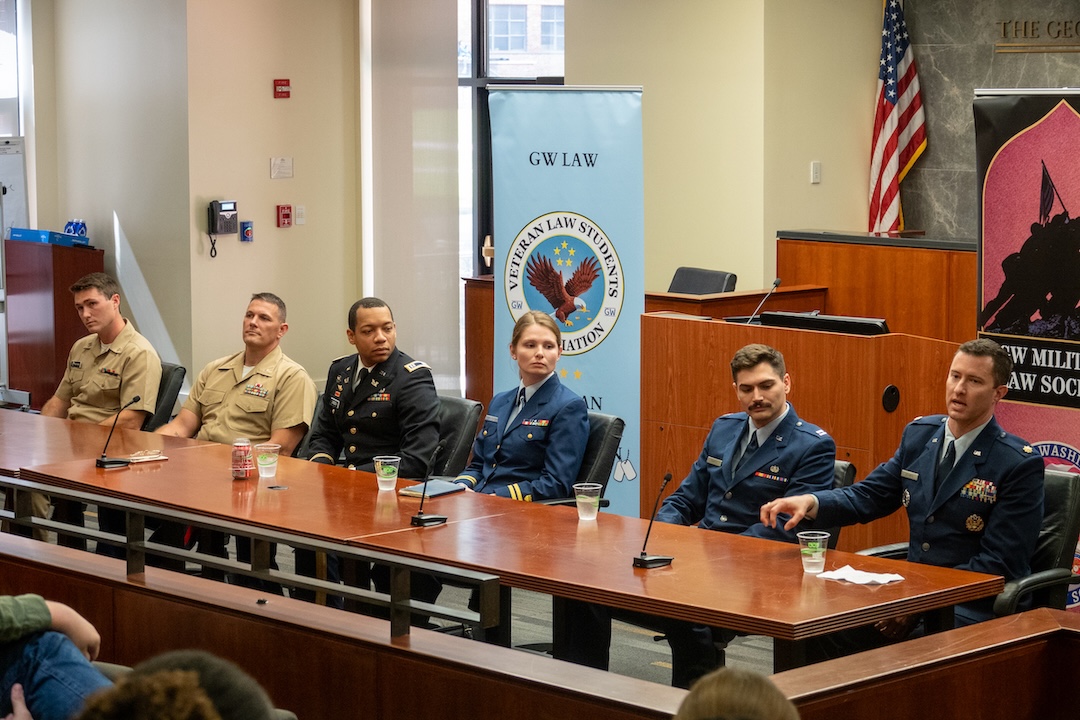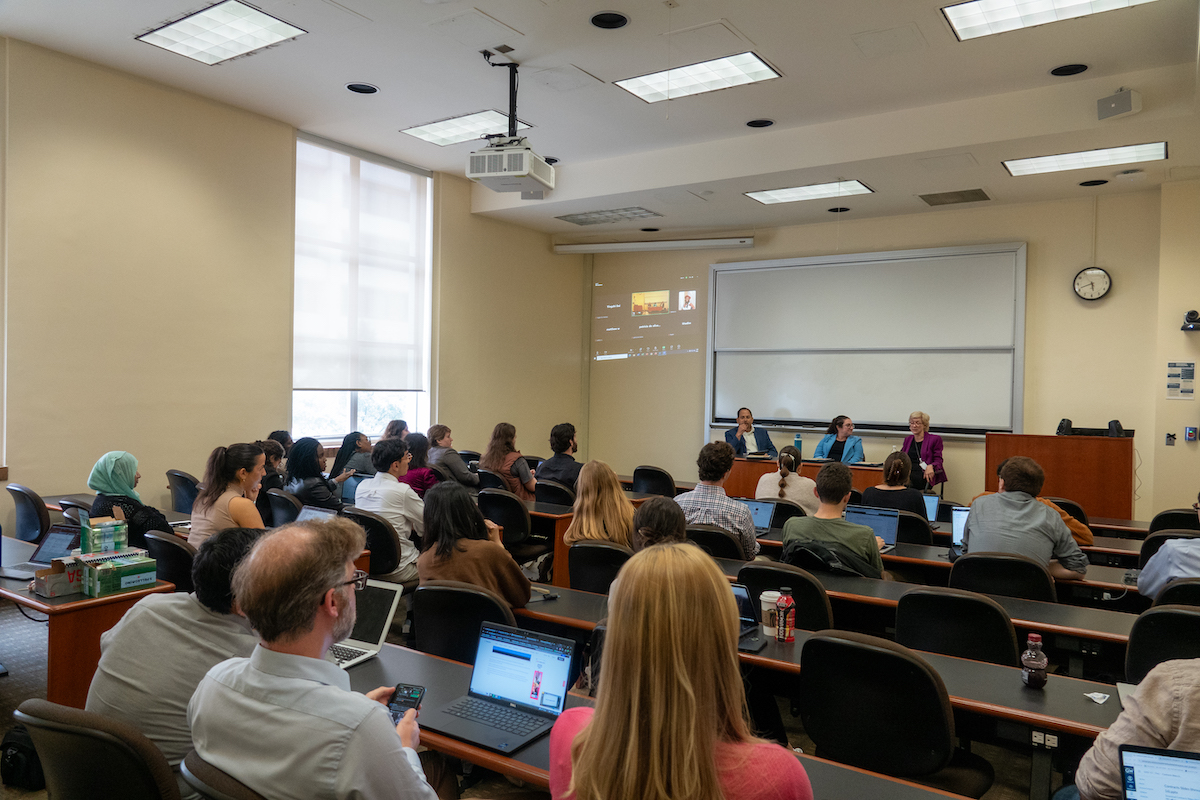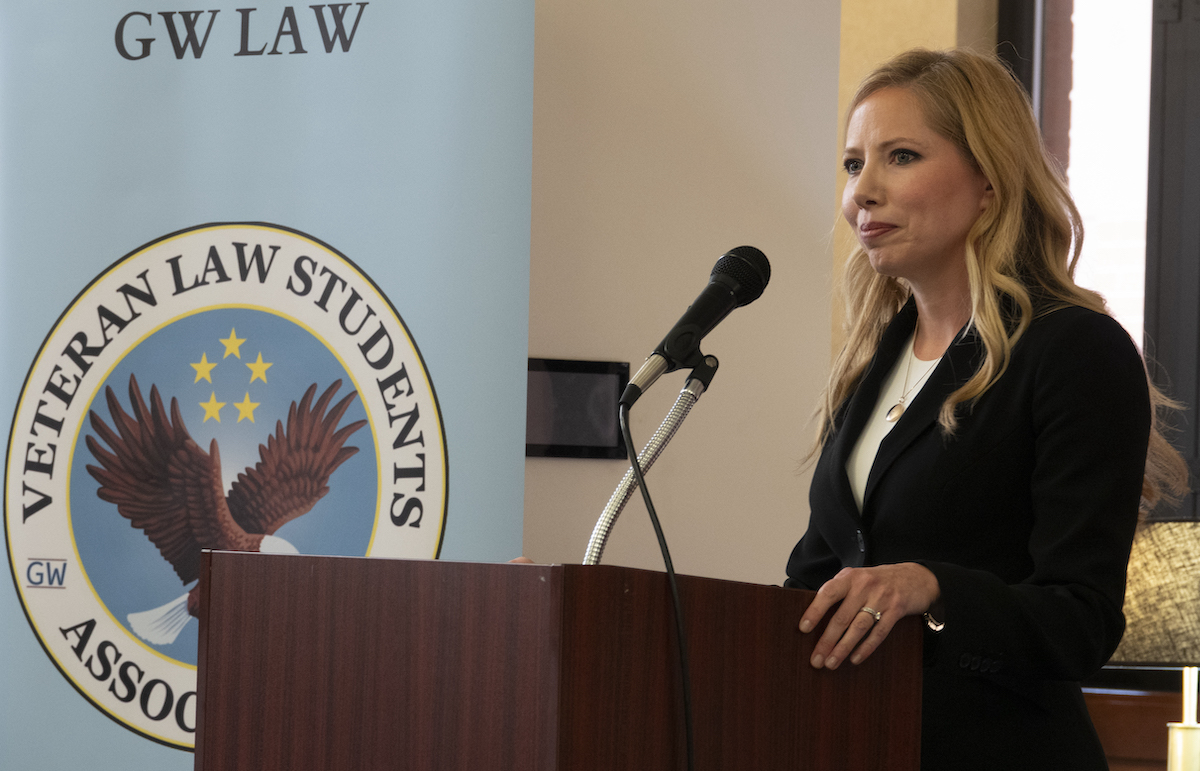GW Law’s National Security, Cybersecurity, and Foreign Relations Law Program and the Military Law Society (MLS) co-hosted the annual Judge Advocate General’s Corps (JAG) recruiter panel on September 11. This year’s panel included accomplished JAGs from each military branch, including Army Captain Jordan A. Green, JD ‘18, Navy Lieutenant Matthew Parker, JD ‘21, Marine Corps Major Jeffrey Amell, Air Force Captain Reid Truett, Air Force Major Matthew Zellner, and Coast Guard Lieutenant Peyton Nedley.
The event offered an opportunity for GW Law students interested in serving in the JAG Corps to have their questions answered and learn more about each service’s distinctive characteristics. Hosting a crowd of over 50 students, this year’s event was one of GW Law’s most well-attended JAG recruiter panels.
The MLS president, Jackson Head (2L and selectee for the Army JAG Corps), led the event and asked the panelists an array of questions about the JAG Corps. Aside from routine subjects such as duty stations, travel, and physical fitness tests, several important topics stood out. Students especially benefited from hearing about employment opportunities and programs for law students, the panelists’ motivations for becoming military lawyers, reasons for choosing one branch over another, each branch’s distinctive mission and culture, how to balance military and family life, and the specific legal areas in which JAG officers practice.
Each panelist offered valuable insights into his or her military branch and individual experiences. Many JAG panelists joined the JAG Corps directly from law school and had no military experience. However, every panelist’s motivation for joining the JAG Corps stemmed from a desire to serve their country while practicing law.
The panelists’ responses shared several key themes. Regardless of branch, every panelist emphasized the JAG Corps’ breadth of legal fields, which include everything from contracts to national security law. Each panelist expressed their satisfaction with working with a well-deserving client base composed of service members and leaders who defend our country. Finally, every panelist emphasized the camaraderie and support military communities offer to ease stress related to deployments, duty station moves, and job changes.
After the panel’s formal portion, student attendees had the opportunity to meet with and ask the panelists questions informally. This successful event emphasizes GW Law’s National Security, Cybersecurity, & Foreign Relation Law Program’s dedication to supporting students with an interest in all facets of national security law, including military law.




